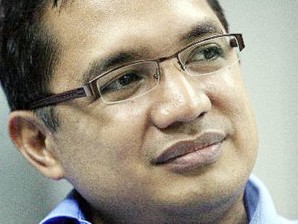MANILA, Philippines—Senatorial candidate Teddy Casiño on Tuesday urged the Aquino administration to reinstate the P17 billion slashed last year from the budget proposal of state universities and colleges (SUCs), and to incorporate that amount in the 2014 budget.
The amount was slashed by the Department of Budget of Management from the original proposal of SUCs last year, he said.
“The P17 billion must be on top of other additional allotments to cover the needs of the SUCs,” Casiño said in a statement.
Expressing sadness over the fate of the University of the Philippines Manila freshman Kristel Tejada who committed suicide after she was supposedly forced to take a leave of absence for not being able to pay the tuition, Casiño also protested the school’s forced leave of absence policy.
“Even if they say they have reversed that policy, it’s too late … I never thought my beloved UP would become a University of the Privileged. But it seems that is what is happening,” he said.
“Before, UP was known for assisting ‘poor but deserving’ students. Now, at UP Diliman alone, less than 10 percent, or around 400 students, pay no tuition. That’s a historical low, they say,” Casiño said.
Citing figures from UP’s student organ, the Philippine Collegian, he said only 2 percent or 74 students were granted free tuition and stipend, while only 8 percent, or 323 students were granted free tuition with no stipend
The three-term congressman for Bayan Muna party-list reiterated his call during the budget deliberations last year to reinstate the P54 billion requested by the 110 SUCs for 2013.
Casiño said his campaign for higher education budget was something that he would continue in the Senate if elected.
“Of the P37.1 billion allocated to SUCs, only P6 billion will go to operations and P3 billion to facilities and equipment. This is ridiculously small considering that it will be divided among 110 schools servicing more than two million students,” Casiño said.
He further cited data from the Congressional Planning and Budget Research Department showing that the SUC share in the GDP of the country has declined from 0.41 percent in 1991 to 0.29 percent in 2013. In that time, the number of SUCs increased from 81 to 110, he said.
“Our spending per student has also been halved in real terms from P32,620 in 1997 to P16,416 in 2009,” Casiño said.
